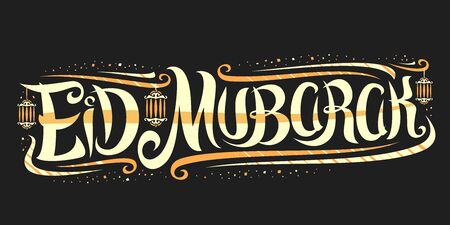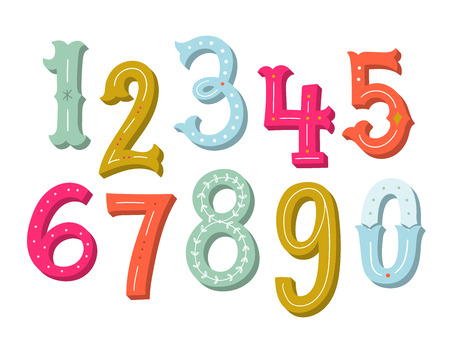Introduction: Western Astrology’s Renaissance
In recent years, Western astrology has experienced a remarkable revival across the United States, capturing the imagination of a new generation and rekindling public interest in the ancient practice. Once relegated to the fringes of pop culture or dismissed as mere entertainment, astrology is now finding its way into mainstream conversations, social media feeds, and even wellness routines. This renaissance is not just about reading daily horoscopes; it reflects a deeper curiosity about self-knowledge, cosmic influences, and personal destiny. The fusion of technology, changing societal values, and a collective search for meaning in uncertain times has created fertile ground for astrology’s resurgence. As we explore the future of Western astrology in America, it’s crucial to understand the social currents and cultural shifts driving this renewed fascination with the stars.
2. Technology and Digital Platforms
In the United States, technology has revolutionized the way people access and interact with Western astrology. The rise of smartphones and high-speed internet has led to a surge in astrology apps, social media content, and online communities dedicated to astrological discussion. This digital transformation has broadened astrology’s reach, making it more accessible to younger generations and diverse audiences who might not have engaged with traditional forms of astrological consultation.
Astrology Apps: Personalized Guidance On-the-Go
Apps like Co–Star, The Pattern, and Sanctuary have become household names among Millennials and Gen Z. These platforms offer daily horoscopes, personalized birth chart readings, and even real-time compatibility analysis. With user-friendly interfaces and push notifications, they provide instant access to astrological insights tailored to individual users. This convenience is a major factor behind their popularity, as shown in the table below:
| App Name | Main Features | User Demographic |
|---|---|---|
| Co–Star | AI-driven daily horoscopes, birth chart analysis | 18-35, urban professionals |
| The Pattern | Relationship insights, personality trends | 20-40, relationship-focused users |
| Sanctuary | Live chat with astrologers, educational content | 18-30, astrology beginners & enthusiasts |
Social Media: Virality and Community Engagement
Platforms such as Instagram, TikTok, and Twitter have played a crucial role in bringing astrology into mainstream American culture. Influencers create viral memes based on zodiac signs, while short-form videos break down complex topics like Mercury retrograde or Saturn return in ways that are easy to understand. Social media also fosters interactive engagement; users can participate in polls about their sun signs or share personal stories using astrology-themed hashtags. This creates a sense of community that extends beyond geographic boundaries.
Online Communities: Learning and Connection Beyond Borders
Online forums and membership sites—such as Reddit’s r/astrology or various Discord servers—offer spaces for deeper learning and peer support. Here, Americans can exchange chart interpretations, discuss planetary transits, or seek advice from experienced practitioners. These communities often blur the lines between amateur curiosity and professional practice, encouraging knowledge sharing and mentorship.
The Impact: Transformation of Astrological Practice in America
This shift toward digital platforms signifies more than just convenience; it democratizes access to astrology by removing barriers like geography or cost. It also encourages greater experimentation with new forms of interpretation and self-expression. As technology continues to evolve, we can expect even more innovative ways for Americans to engage with Western astrology—potentially including virtual reality experiences or AI-driven personalized guidance—cementing its relevance in contemporary culture.

3. Cultural Integration and Demographic Shifts
Astrology in the United States is experiencing a remarkable transformation, moving far beyond its niche origins to become a prominent feature of mainstream culture. This evolution is characterized by astrologys growing appeal among diverse age groups, ethnic communities, and social backgrounds. Unlike previous decades—when astrology was often associated with specific countercultural movements or considered a pastime for a select few—today’s landscape reveals broad engagement across Millennials, Gen Z, Baby Boomers, and even older generations. This demographic expansion is fueled by the accessibility of astrological content on digital platforms like Instagram, TikTok, and popular podcast networks, where horoscopes and birth chart analyses are tailored to resonate with different lifestyles and identities.
Moreover, astrology is weaving itself into the fabric of American popular culture. From collaborations with fashion brands and lifestyle influencers to features in mainstream media and entertainment, astrology now permeates daily life. It’s not uncommon to see zodiac-themed merchandise at major retailers or astrological references in hit television shows. Additionally, workplaces and educational settings are witnessing an openness toward personality-based discussions rooted in astrological archetypes, reflecting a collective curiosity about identity, purpose, and interpersonal dynamics.
This widespread cultural integration signals not only changing attitudes but also an increased willingness to embrace alternative frameworks for understanding oneself and others. As astrology intersects with wellness trends, mental health awareness, and community-building activities, it continues to attract new adherents while inviting critical conversations about authenticity and representation. Ultimately, these demographic shifts underscore astrology’s dynamic role in shaping—and being shaped by—the evolving American cultural landscape.
4. Trends in Astrological Practice
In the United States, astrological practice is experiencing a dynamic transformation shaped by both tradition and innovation. As Western astrology continues to gain mainstream acceptance, several current and emerging trends are shaping how practitioners operate, educate, and uphold ethical standards.
Consulting: From Personalization to Digital Integration
Modern astrological consulting has shifted from generic chart readings to highly personalized sessions. U.S. astrologers are increasingly leveraging technology, offering remote consultations through video calls and integrating AI-powered tools for more nuanced interpretations. This digital transition not only broadens access but also caters to younger audiences seeking convenience and privacy.
| Consulting Trend | Description | Impact on Clients |
|---|---|---|
| Virtual Sessions | Readings conducted via Zoom, Skype, or specialized apps | Greater accessibility nationwide |
| AI-Assisted Analysis | Software for advanced chart calculations and transit tracking | More precise and data-driven insights |
| Niche Specializations | Focusing on career, relationships, or wellness astrology | Tailored guidance for specific life areas |
Education: Expanding Access and Professionalism
The rise of online learning platforms has democratized astrological education in the U.S. Reputable astrologers now offer webinars, certificate programs, and mentorships accessible to learners across the country. Additionally, there is a growing emphasis on standardized curricula and credentialing through organizations like the National Council for Geocosmic Research (NCGR) and the International Society for Astrological Research (ISAR).
Popular Educational Approaches:
- Self-Paced Online Courses: Flexible modules for beginners to advanced students.
- Live Workshops & Conferences: Interactive events fostering community and networking.
- Mentorship Programs: One-on-one guidance from experienced practitioners.
- Certification Tracks: Formal assessment leading to professional credentials.
Ethical Considerations: Raising Standards and Transparency
The American astrological community is increasingly focused on ethics to ensure client trust and protect vulnerable individuals. Many practitioners adhere to published codes of ethics that emphasize confidentiality, informed consent, and clear boundaries regarding health or legal advice. The push for transparency includes disclosing qualifications, methodologies, and limitations of astrological guidance.
Main Ethical Focus Areas:
- Client Privacy: Safeguarding personal information shared during sessions.
- Scope of Practice: Avoiding diagnosis or legal counseling outside astrology’s domain.
- Diversity & Inclusion: Respecting cultural backgrounds and avoiding bias in interpretation.
- Ongoing Education: Commitment to professional development and ethical awareness.
Together, these trends reflect a vibrant evolution within U.S. astrological practice—blending time-honored wisdom with modern tools and values to meet the needs of a diverse clientele while upholding professionalism and integrity.
5. Skepticism, Science, and the Quest for Legitimacy
In contemporary American society, Western astrology faces a continuous push and pull between enthusiastic supporters and vocal skeptics. As astrology experiences a resurgence among younger generations, critics argue that its claims lack scientific rigor and empirical evidence. This skepticism is not new; ever since astrology separated from astronomy in the Enlightenment era, the scientific community has largely dismissed astrological practices as pseudoscience. However, modern astrologers are increasingly aware of this critique and are actively engaging with scientific discourse to bolster astrology’s legitimacy.
Astrology supporters often point to the psychological benefits of self-reflection and meaning-making derived from birth charts and horoscopes. They argue that while astrology may not fit neatly into traditional scientific frameworks, it provides value through personal insight and communal connection. In contrast, skeptics emphasize the importance of controlled studies and reproducible results—standards which astrology has struggled to meet under conventional methodologies.
This ongoing dialogue is especially vibrant in the United States, where freedom of belief allows for a broad spectrum of perspectives. Some astrologers are now collaborating with psychologists and social scientists to investigate potential correlations between astrological indicators and personality traits or life events. Others are working to develop more transparent methodologies and ethical guidelines for practice.
Despite persistent doubts within academic circles, astrology’s integration into mainstream culture—through apps, podcasts, and social media—demonstrates its adaptability and enduring appeal. Whether astrology will achieve greater legitimacy depends on its ability to engage constructively with criticism while continuing to evolve alongside American cultural values.
6. Predictions: The Road Ahead for Astrology in the USA
As we look ahead, the future of Western astrology in the United States appears dynamic and multifaceted. Several emerging trends suggest that astrology will continue to adapt, gaining new relevance through technological innovation, increased professionalization, and deeper cultural integration.
Technological Advancements Will Reshape Practice
Astrology has always evolved alongside societys tools, and in the digital era, this is more apparent than ever. The proliferation of AI-driven astrology apps and personalized software is already making chart interpretation faster and more accessible. Looking forward, we can expect even more immersive experiences—think virtual reality astrological readings or real-time transit notifications integrated into daily life. These technologies will not only democratize access but also foster a new generation of tech-savvy astrologers and clients.
Professionalization and Standardization
The call for greater legitimacy within the field is leading to an increase in certification programs, ethical codes, and standardized curricula. As astrology becomes more accepted in mainstream American culture, there will be growing demand for professional accountability. We may see state-level licensing or national accreditation bodies emerge, ensuring that practitioners meet consistent standards of knowledge and ethics. This shift will help astrology gain further trust among skeptics and appeal to those seeking serious guidance.
Cultural Integration and Influence
Astrology’s influence on American culture is likely to deepen as it continues to intersect with other fields such as psychology, wellness, and creative arts. Collaborations between astrologers and therapists, coaches, or artists may become commonplace, offering holistic approaches to personal development. Additionally, social media platforms will keep serving as powerful channels for sharing astrological insights, memes, and collective horoscopes—making astrology a living language within pop culture.
Embracing Diversity and New Voices
The next wave of American astrology will reflect the nation’s diversity. More voices from BIPOC communities, LGBTQ+ astrologers, and practitioners outside traditional frameworks are shaping discourse and practice. This inclusivity not only enriches astrological perspectives but also ensures its continued relevance across generations.
The Bottom Line
While skepticism will remain part of public dialogue, the road ahead for Western astrology in the USA is one of growth through adaptation. By embracing new technologies, strengthening professional standards, and weaving itself into the fabric of American life, astrology is set to maintain—and even expand—its unique role in guiding individuals through an ever-changing world.


